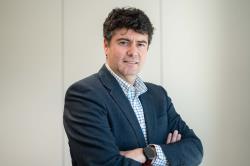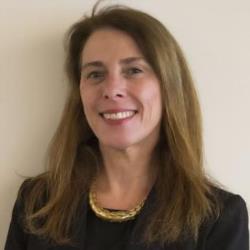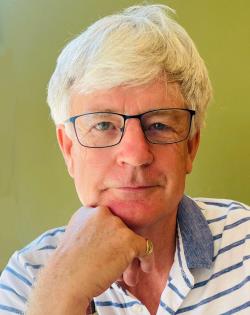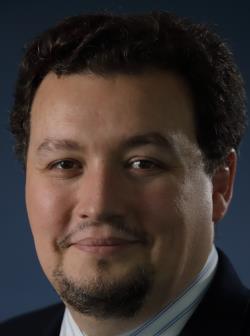Space for Sustainable Development: the case of connectivity
International Telecommunication Union
Session 491
Space technology is now very often quoted as having a crucial role to play in providing connectivity and bridging the digital divide.
The Plan of Action adopted at the end of the first session of the World Summit on the Information Society (WSIS) in December 2003 was already recognizing this role by calling “to develop and strengthen national, regional and international broadband network infrastructure, including delivery by satellite and other systems, to help in providing the capacity to match the needs of countries and their citizens and for the delivery of new ICT-based services”.
Since 2003, a number of initiatives have been developed by States to ensure the availability of such satellite services. This session will feature three prominent examples of such success: Angola, Spain and India.
In parallel and at an unprecedented pace, the satellite industry has innovated in multiple areas ranging from the use of lower orbits, the dramatic increase in throughput delivered by satellite systems (as reflected by the evolution from “high-speed satellite services” in the 2003 WSIS Plan of Action to the current mention of “Very High Throughput Satellites”) and the ability to seamlessly integrate with terrestrial systems. The Global Satellite Operators Association will provide insights into this series of achievements during the session.
But all these initiatives and innovations are in vain if we lose sight of the goal they seek to support: providing means of affordable connectivity to those that are unserved or underserved. According to the latest data from ITU, the number of people worldwide not connected to the Internet in 2023 are estimated to 2.6 billion people. This number only is a stark reminder of the remaing work ahead of us. The ICT4D Collective will share with us some outputs from the research they conduct in the field of Information and Communication Technologies for Development.
While satellite technology was initially considered to promote the provision of global high-speed satellite services for underserved areas such as remote and sparsely populated areas, new technologies merging terrestrial communication networks and satellite systems are maturing and now offer promises of a seamless integration between this long-separated worlds, not only in these remote areas but basically everywhere humans want to be connected.
The session aims at providing the audience with:
· relevant successful cases where satellite technology has been instrumental in developing better connectivity,
· an understanding of potential hurdles faced by governments and the private sector in deploying and using satellite technologies for connectivity,
· a vision of the future needs in terms of satellite connectivity and of the feature and services offered by future satellite technology.

Mr Mario Maniewicz was re-elected for a second term as Director of the ITU Radiocommunication Bureau at the ITU Plenipotentiary Conference 2022 in Bucharest, Romania. Mr Maniewicz was first elected Director of the Bureau at the ITU Plenipotentiary Conference 2018 in Dubai, United Arab Emirates. He first took office on 1 January 2019.Mario Maniewicz is an electronic engineer specialized in telecommunications. He has been with the ITU for over 30 years, where he has held various positions of responsibility in the Radiocommunication and Development Bureaux as well as in ITU Regional Offices.
From 2014 to 2018, he was the Deputy Director of ITU’s Radiocommunication Bureau (BR), where he assisted the Director of the BR, Member States, Sector Members, Associates and Academia in the vital function of global management of the radiofrequency spectrum and satellite orbits. He also headed the Informatics, Administration and Publication Department, was the overall organizer of the World Radiocommunication Conference 2015 (WRC-15) and played a key role in WRC-15 serving as the Secretary of the Conference.

Mário Augusto da Silva Oliveira, born on April 06, 1964, son of Mário Januário de Oliveira and Maria Augusta da Silva Oliveira, of Angolan nationality – Luanda, graduated in Telecommunications Engineering .
He had a long career at Grupo Sonangol , starting at Sonair as technician 1991 and then holding various positions at MSTelcom as Commercial Manager in 2006, Operation Manager in 2009, Engineering Manager in 2012, and member
of the board of Directors Executive Committee.
He served as Vice-president of the Angolan Handball Federation, President of Zone 6 SADC, of the African Handball Confederation, member of the Executive Committee of the African Handball Confederation and member of the Angolan Olympic Committee. He has done various technical, management and leadership training in Europe and abroad, participated in several fairs, workshops and work visits within the telecommunications sector. He speaks English and Spanish.
His career in the Government began in October 2017 with his appointment as Secretary of State for Telecommunications and Information Technologies and currently serves as Minister for Telecommunications, Information Technologies
and Social Communication.

Within the Ministry for Economic Affairs and Digital Transformation, Matías González Martín is in charge of the regulation, promotion and development of telecommunications, digital infrastructures and audiovisual communication services and of the Spanish participation in international organizations and working groups dealing with telecommunications and audiovisual communication services.
Academic Background
1997 MSc. degree in Telecommunications Engineering from the UPM (Spain)
Professional Experience
2021 - 2023 - Consultant in the Cabinet of the Secretary of State for Telecommunications and Digital Infrastructures
2010 - 2021 - Head of Regulatory Affairs and Public Affairs of Vodafone Spain
2001 - 2010 - Manager of Regulatory Affairs and Public Affairs of Vodafone Spain
2000 - 2001 - Interconnection and roaming specialist, negotiation of interconnection agreements and related regulatory issues in Vodafone Spain
1999 - 2000 - Switching technical engineer, design and planning of telephone switching network in Vodafone Spain
1997 - 1999 - Switching technical engineer, design and planning of telephone switching network in Retevision S.A.

Mr. Verma joined the Indian Administrative Services (IAS) in 1994, serving in the Assam-Meghalaya cadre. Throughout his career, he has worked in various districts including NC Hills, Nagaon, Goalpara, and Sibsagar, and served as the District Magistrate in Dibrugarh. He was also the Managing Director of the Assam Industrial Development Corporation (AIDC) and held positions as Commissioner & Secretary/Secretary in the departments of Industries, Information Technology, Agriculture, Science & Technology, and the Chief Minister’s office until 2011.
In August 2011, Mr. Verma moved to New Delhi on central deputation with the Government of India, where he joined the Ministry of Road Transport & Highways as Joint Secretary. From March 2016 to August 2018, he was a Member (PPP) at the National Highway Authority of India (NHAI), and he held additional charge as Member (Finance) until December 2016.
After November 2018, Mr. Verma was posted as Principal Secretary (Power) for the Government of Assam. In this role, he also served as Chairman of three power utilities—APGCL, AEGCL, and APDCL—responsible for generation, transmission, and distribution. He additionally held the position of Principal Secretary, Home & Personnel, until November 2023.
On November 22, 2023, Mr. Verma rejoined the central government and is currently working as the Administrator of the Universal Service Obligation Fund (USOF) in the Department of Telecommunications.

Isabelle Mauro is Director General of the Global Satellite Operators Association (GSOA) that represents the interests of the satellite industry ecosystem. Under Isabelle’s leadership, GSOA and its member CEOs lead the effort to showcase the benefits of satellite communications for a more inclusive, sustainable and secure society - vital to bridging the world’s digital divide, achieving the UN’s Sustainable Development Goals and realizing the full potential of the 5G & 6G ecosystem.
Isabelle has 25 years’ experience in the Telecoms and Technology sector, starting at the GSMA, where she was responsible for International & External Affairs for fifteen years. In 2015 she moved to New York to join the World Economic Forum as Head of the Information, Communications and Technology (ICT) Industry, managing the portfolio of over 60 Tech companies globally and leading initiatives on inclusive and sustainable digital transformation.
Isabelle is passionate about inclusion and sustainability. She is a Commissioner of the UN Broadband Commission for Sustainable Development. Isabelle is also Member of the Advisory Board of Access Partnership and of the High-Level Advisory Board of the DigitalGoesGreen Foundation. She also sits on the Advisory Board of Women in Tech.
Isabelle holds an MSc in European Politics and Policy from the London School of Economics. She is fluent in French, English, Italian and Spanish.

Tim Unwin (born 1955) is a British academic and public figure, specialising in the uses of digital technology by the world’s poorest and most marginalised peoples. Trained as a geographer, he believes in crossing boundaries between disciplines and sectors, as well as in the importance of international understanding between peoples and governments. He was Secretary General of the Commonwealth Telecommunications Organisation from 2011-2015, was Chair of the Commonwealth Scholarship Commission from 2009-2014, and over the last decade has worked closely with UN agencies, and particularly the ITU, UNESCO and UNICEF. He has written or edited 17 books and more than 250 other publications, with his influential edited book Information and Communication Technologies for Development, being published by CUP in 2009, and his latest single authored book Reclaiming ICT4D being published by OUP in 2017. He was the founder of the ICT4D Collective in 2004, and most recently was the catalyst behind the creation of the Digital-Environment System Coalition in 2022.

Alexandre Vallet is the current Chief of the Space Services Department in the Radiocommunication Bureau of the International Telecommunication Union (ITU), since November 2017. As such, he leads the team responsible for the maintenance of the international registry of satellite radio frequencies, which allows all countries around the world to coordinate their use in order to avoid radio interference in outer space.
Alexandre Vallet began to work in 2000 in the R&D center of Orange dealing with communications satellites. In 2006, he joined the satellite operator Eutelsat where he was in charge of regulatory matters. From 2007 to 2017, he was the Head of the Regulatory affairs and Spectrum/Orbit Resources Department at the French Agency in charge of radio spectrum management (Agence Nationale des Fréquences – ANFR).
-
 C2. Information and communication infrastructure
C2. Information and communication infrastructure
-
 C6. Enabling environment
C6. Enabling environment
This session will address the WSIS Action Lines C2 “Information and communication infrastructure” and C6 “Enabling environment” by focusing on the role of satellite technology in contemporary information and communication infrastructure and the need for supporting regulations cognizant of the specificities of satellite technologies while technology-neutral in their design.
-
 Goal 9: Build resilient infrastructure, promote sustainable industrialization and foster innovation
Goal 9: Build resilient infrastructure, promote sustainable industrialization and foster innovation
This session is linked with SDG Goal 9 “Build resilient infrastructure, promote sustainable industrialization and foster innovation” since practical examples of sustainable connectivity will be presented. Discussions will also address the means to support and foster innovation from the satellite industry.